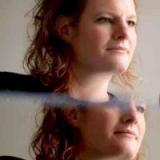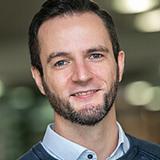NFTs: Solid Investment or Crazy Hype?
Buying NFT art pieces that only exist online, it’s the newest collector’s trend. Anything digital can be an NFT, such as pictures, videoclips, but also tweets, memes or soundbites. But what’s the point of paying big bucks to own a piece of the internet? (English / SG-Certificate*)
Time: 15:45-18:15 hrs.
Admission is free, registration required
Art on a screen only
It is said that NFTs (or Non-Fungible Tokens) have value, because they can be used to prove that something on the internet is yours. Everything digital can therefore become one of a kind, irreplaceable, online work of art. This digital revolution of art that only ‘exists’ online is remarkable and raises questions about what it means for the regular and physical art market. How should we deal with this development? Should NFTs even be seen as real pieces of art? Will NFTs be the future of art collecting?
Various views on NFTs and digital art
During this symposium we will explore the topic of NFTs with experts from four different academic perspectives. After their short lectures there will be time to ask questions and we will host an interactive discussion with the guest speakers and audience at the end, so you can share your own thought-provoking questions, statements and experiences. This symposium will be moderated by Cognitive Science & Artificial Intelligence student Ina Klarić.
Program
15:45 Welcome and opening by Ina Klarić
15:50 “NFTs: Past, Present, Future” by Dominik Gutt (Business Information Management)
NFTs have gathered considerable attention since the beginning of 2021. Within a few months, digital artworks were sold for hundreds of thousands of dollars, while individual investors followed and invested in NFTs. New businesses were created and established organizations branched out and invested in this nascent area to gain first mover advantages. But what are NFTs and why should we care? In his talk, Dominik will discuss the history of NFTs: how NFTs came to be, and why they exploded in popularity. His talk will continue by discussing the present: the current state of the NFT market, a new business model that was created, and what cutting-edge research tells us about how NFTs can affect traditional industries. There will also be an attempt to predict the future of NFTs by studying technological advancements, investments, and the potential future applications of the NFT-technology.
16:10 Talk by Paul Halliday (Law)
IP rights in respect of digital art have not had a particularly easy relationship. This is partly due to misunderstandings about technology as well as law, but this has also sparked arguments that copyright law is no longer best fit for the current technological era. NFTs then entered the picture. Many believed (or still believe) that NFTs hold the answer to solve the issues surrounding copyright and digital artworks. But is this actually the case? Can NFTs truly solve all the issues or might they also create new issues themselves? We will examine NFTs in this particular context to highlight the positive as well as the negative sides of using NFTs in the context of IP and copyright in particular.
16:40 Short Break
16:50 “NFT Cultures” by Inte Gloerich (Culture Studies)
The NFT hype that emerged in 2021 is often described as bringing about a new form of art called ‘crypto art’ or ‘NFT art’. However, terms like these are ill-defined and are used to describe a wide range of very different phenomena, such as collectibles, big art sales that make global headlines, as well as media art that critically reflects on the technology itself. There is therefore no such thing as a singular ‘NFT culture’, but instead there are several cultures that come together around this shared technology. During this talk, Inte will begin to pick apart some of the different NFT cultures that exist, the different reasons that NFTs and blockchain technology attracts them, and what kind of NFT imaginary they each envision.
17:10 “Ontology of art meets ‘the infinite machine” by Nathan Wildman (Philosophy)
In his talk, Nathan compares three distinct types of artworks and considers their ontological nature (ontology being the study of what exists and what doesn’t exist). Next to this, he explains how the concept of ownership applies in each art case. The first, likely most familiar type, concerns material objects – i.e., concrete particulars, such as books or physical artworks. The second type is what is sometimes called ‘authored works’ – this is typically the stuff of copyright, and can be best understood as something like an abstract particular or a token. The third, and strangest type, are NFTs. Often associated with digital art, NFTs seem to be special sorts of tokens distinct in kind from either material objects or authored works. This weird nature makes it difficult to apply the notion of ownership to them, falling somewhere in a halfway house between ownership of concrete particulars and ownership of copyright.
17:40 Interactive discussion with guest speakers & audience
18:10 Wrap up by Ina Klarić
Speakers
-

Inte Gloerich
PhD researcher and lecturer at Utrecht UniversityInte Gloerich is currently doing her PhD on the socio-technical imaginaries in blockchain culture at Utrecht University (Department of Media and Culture Studies). Next to this, she is a researcher at the Institute of Network Cultures (Amsterdam University of Applied Sciences). Her research interests involve the politics, artistic imagination, and (counter)cultures surrounding digital technology and economy.
-

Dominik Gutt
Assistant Professor at the Rotterdam School of Management, Erasmus UniversityDominik Gutt teaches economics of digital markets, research methods and web scraping. His research interests include customer behavior, interaction and platform design, with a specific focus on Smart Contracts, such as NFTs and Smart Conversational Agents. He also researches user-generated content, such as electronic word-of-mouth or peer-to-peer video streams. He obtained his PhD from Paderborn University in May 2019.
-

Paul Halliday
Junior researcher at Tilburg UniversityPaul Halliday is a teacher, lecturer and coordinator at the Tilburg Institute for Law, Technology and Society, under the department of Law, Technology, Markets and Society. His research interests lie in intellectual property law, innovation and their interplay with human rights. His research focuses on more recent European copyright legislation and the implications of its implementation for industries which are potentially ill-fitted to such implementation, but which are nevertheless affected.
-

Nathan Wildman
Assistant Professor Philosophy at Tilburg UniversityNathan Wildman teaches Logics and Digital Esthetics at the Department of Philosophy (Tilburg School of Humanities and Digital Sciences). He is also a member of TiLPS – the Tilburg Center for Logic, Ethics, and Philosophy of Sciences. Prior to coming to Tilburg, he was a University Lecturer in Philosophy at the University of Glasgow and Hamburg. His research interests include interactive fiction, metaphysics, philosophy of language, aesthetics and videogames.
More information
This symposium is organized by Studium Generale in cooperation with student associations Animo and Enigma (CS&AI).
Contact: Hannah van den Bosch (Studium Generale).
* For students, this lecture may count towards the SG-Certificate. Check the SG-Certificate website for all the terms and conditions.
